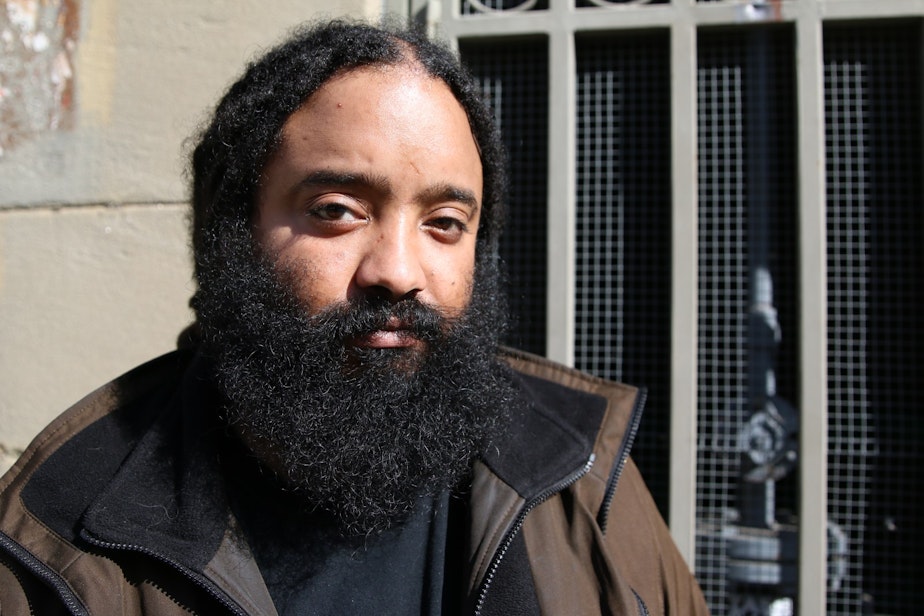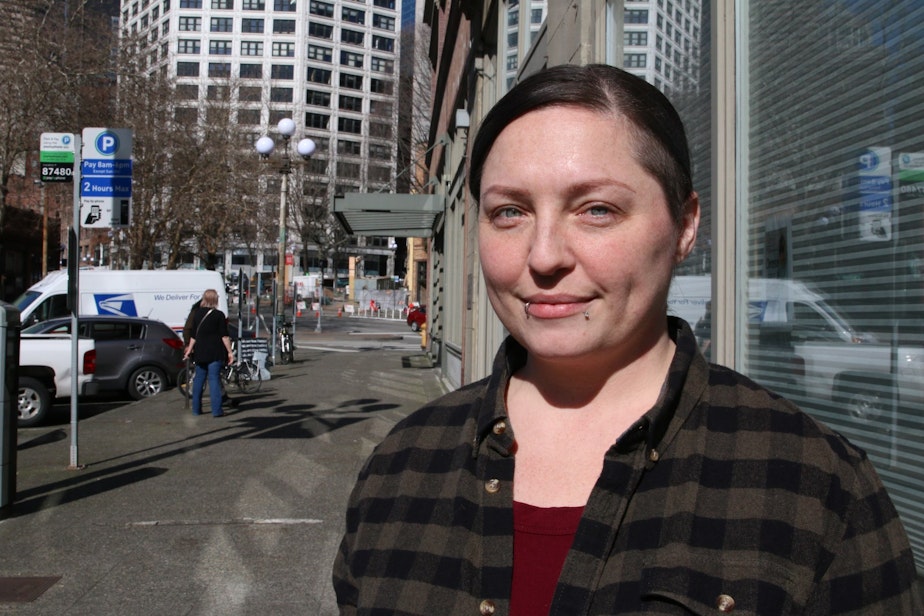Typhoid Mary on my mind: Coronavirus reveals thin safety net for gig workers

Many people are choosing to work from home in order to minimize their exposure to the novel coronavirus. That’s not an option for the many gig workers who say low wages mean they have to keep working.
Jason Reeves drives for DoorDash, in Seattle. He picks up meals for people from restaurants.
Recently, he traveled on personal business, and when he came back in early February, he had cold like symptoms. He stopped working for a while. But eventually, he faced a dilemma.
“I’m sick," he recalled thinking, "But I still need money. And I still need to be able to pay these bills. And I hate to say it, I had to go out and expose people to what I had,” which he believes was just a cold. After all, he didn’t have a cough, or shortness of breath. But now, with all the news swirling around about coronavirus, he’s been second guessing himself.
Lately, he's been thinking about Typhoid Mary. A cook who unknowingly spread typhoid across New York City in the early 1900s. “I’m wondering, could I be a 'Typhoid Jason?' Or a 'Coronavirus Jason?'” he asked.
Most gig platform companies advise their workers to stay home, if they feel sick. But if you’re not working, you don’t get paid, even if the reason you’re not working is the coronavirus.
Sponsored

A lot of gig workers tell me they like their jobs. Whether they walk dogs, deliver meals, repair homes, or do your shopping , gig workers choose these jobs because they can be their own boss and set their own hours. But sometimes that means they don’t take care of themselves.
“I haven’t been to the doctor in three years," said Reeves. "I don’t have insurance. So, I don’t even think about it.”
Gig jobs offer freedom and flexibility. But this illness highlights the cost of that freedom. And labor activists are highlighting that.
At a gathering of gig workers at a crowded café just south of downtown Seattle, Rachel Lauter, executive director of Working Washington, took the stage.
Sponsored
“First, let me say I know coronavirus is on a lot of people’s minds today," Lauter began. "There’s a lot at stake here for workers, and especially gig workers.”
Lauter was on stage to announce the launch of Working Washington's campaign to demand higher wages for gig workers. She built her opening speech around the coronavirus.
“Many workers aren’t able to prioritize their health," she said. "They don’t get to take the time off if they’re sick. They don’t get paid sick days.”
That group's trying to raise worker wages, so workers can afford time off for illnesses like the coronavirus. Meanwhile, at Seattle City Hall, Councilmember Theresa Mosqueda has another idea. It involves a Seattle law that guarantees paid sick days to employees.
The law was designed to keep sick workers out of restaurants. But Mosqueda says the gig workers who actually deliver food are not covered.
She wants to change that.
“One of the things we’re looking at is expanding who can access paid 'sick and safe leave,'" she said. "Perhaps what we need is a larger insurance pool, that you can imagine workers and employers paying into, very similar to a system that we currently have with workers' compensation.”
Sponsored
These two strategies, guaranteeing a minimum wage and adding sick leave benefits, would make gig workers more like traditional employees. That approach alarms Mark Harmsworth. He’s a former state legislator, now with the Washington Policy Center, a conservative think tank.
Harmsworth said programs that offer costly new benefits would harm gig workers, because those same workers would end up paying for them. Or, he said, the employer would eat the cost, and that reduces the number of jobs available. Either way, he said, it’s bad.
But Jason Reeves believes that paying gig workers more, so they can afford time off, is a worth a shot.
“At the very minimum, it would give us more options to seek out health care on our own time,” he said.
Our economy is highly dependent on gig workers. And the coronavirus has thrown a microscope on how little protection they have.

